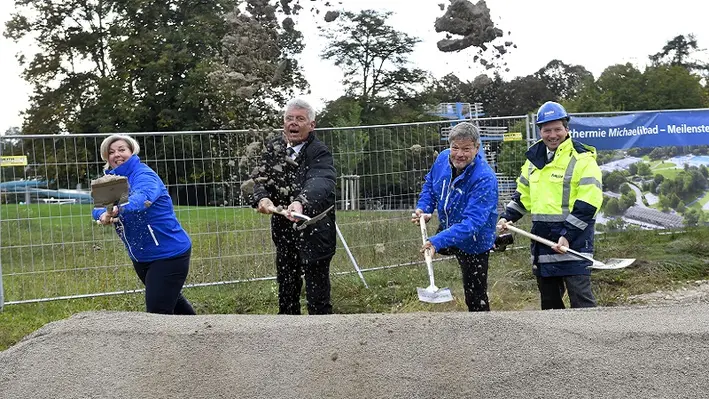

Stadtwerke München (SWM), one of the largest municipal companies in Germany, has announced that the construction for a new geothermal plant in Germany is now underway.
Already operating six geothermal plants in and around Munich, the new project will be built on the site of the Michaelibad in southeast Munich and is expected to be completed in 2033. It is being undertaken as part of SWM’s efforts to cover Munich’s district heading needs in a climate-neutral way by 2040 at the latest.
Projected to supply heat to around 75,000 Munich residents, the plant will have four extraction and four reinjection boreholes, an adjacent heating station and a large heat pump to further increase the heat yield.
So far, demolition work has been carried out on buildings where the heating station will be located and preparations have also been made for the integration of the future geothermal plant into the district heating network. Now, attention turns to construction, a milestone marked by a groundbreaking ceremony held at the site.
“Geothermal energy is a climate-neutral, inexhaustible and at the same time reliable source of energy that is available all year round,” commented Robert Habeck, Federal Minister for Economic Affairs and Climate Protection. “It can also be used to cover a persistently high demand for heat. The Munich municipal utilities are a good example of how this technology can be successful in densely populated cities. The development of geothermal heat has the potential to cover around a quarter of Germany's required renewable heat demand by 2045. The aim is to increase the current geothermal energy feed into heating networks tenfold. The SWM is actively contributing to achieving this goal.”
Karin Thelen, SWM Managing Director of Regional Energy Transition, added, “In order to generate district heating in an even more climate-friendly way, we are consistently expanding the use of geothermal energy as part of our transformation plan. 20 years after our first geothermal plant at the Riem trade fair, we are building our seventh plant here at the Michaelibad.
“We are planning another on the site of the former Virginia depot in the north of Munich, and additional locations are currently being explored with the city administration. In total, we want to build ten geothermal projects with more than 50 new deep boreholes in and around Munich. In addition, we are making our existing plants more efficient through additional drilling. Large heat pumps directly at the location of the geothermal plant, as here at the Michaelibad, should also make the heat from the return flow usable for district heating. However, without federal funding for efficient heating networks, the feat of municipal heat transition cannot be managed. We are receiving funding for the plant at the Michaelibad, for which I would like to express my sincere thanks.”
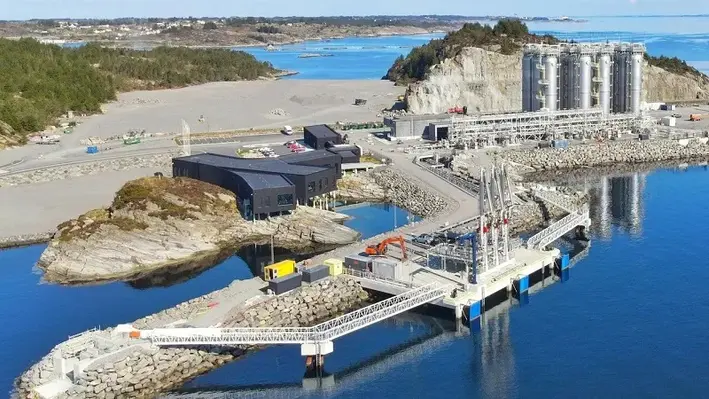

The Northern Lights cross-border carbon capture and storage facility at Øygarden in Norway has been declared completed and ready to receive CO2.
The official opening of the facility – a joint venture between Equinor, Shell and TotalEnergies – was confirmed in a visit by the Norwegian Minister of Energy. The facility is expected to provide a vital outlet for large and hard-to-abate industrial emitters that need to decarbonise their processes.
It is part of the Norwegian full-scale CCS project Longship. This includes the capture of CO2 from industrial sources and shipping of liquid CO2 to the terminal in Øygarden before transportation – via pipeline – to the offshore storage location below the seabed in the North Sea.
“The completion of the Northern Lights facility marks an important milestone for the global development of a business model for carbon capture, transport and storage. It opens a value chain for decarbonisation of European industry and energy and shows the role we and our partners take in developing low carbon solutions in the energy transition” remarked Equinor CEO Anders Opedal.
The first phase capacity of 1.5mn tons of CO2 per year is fully booked, and the joint venture owners continue to work on plans to increase the transport and storage capacity for the future.
“This project demonstrates what can be achieved when authorities and industry are working towards the same goal and co-invest to reduce risks,” added Opedal. “Equinor has several CO2 transport and storage developments in our portfolio as operator and partner. The established Northern Lights value chain and experience from the project will be valuable in maturing and scaling up future CCS projects.”
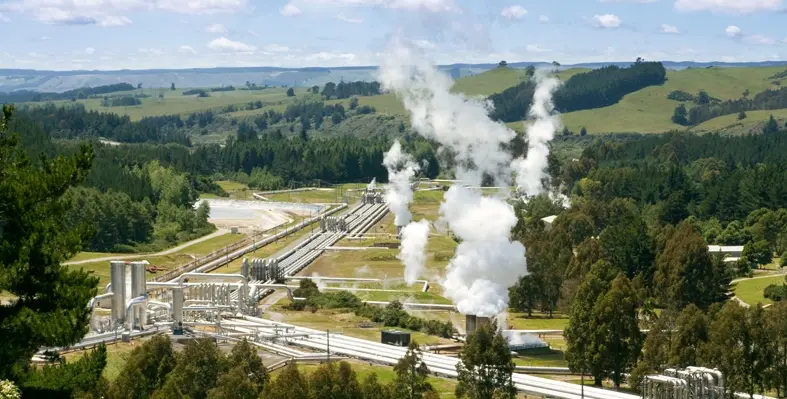
 European Commission-endorsed body, European Technology & Innovation Platform on Geothermal (ETIP-Geothermal), has launched the new vision for geothermal 2030/50, 'Geothermal Horizons: from Cities to Regions'.
European Commission-endorsed body, European Technology & Innovation Platform on Geothermal (ETIP-Geothermal), has launched the new vision for geothermal 2030/50, 'Geothermal Horizons: from Cities to Regions'.
Designed in lines with the EU climate-neutral milestone by 2050, this vision aims to address the climate transition and secure Europe’s energy supply in an affordable way. Its research agenda targets the development of novel geothermal applications tailored to meet the diverse energy needs of European citizens and industries. A crucial step is the integration of these applications into the European energy security scheme, particularly in regions vulnerable to external energy dependencies.
“This ETIP Geothermal Vision looks towards the future of geothermal energy development to achieve the European Union’s climate-neutral milestone by 2050, and it highlights the great benefits of geothermal to decarbonise our economy. It is a unique solution to allow a sustainable energy transition with a paradigm shift for a circular economy. Geothermal is a key enabler for energy system integration, bringing renewable resources to the power, and heating and cooling industries in addition to energy storage and critical raw materials supply,” said Luca Xodo, ETIP Geothermal Chair.
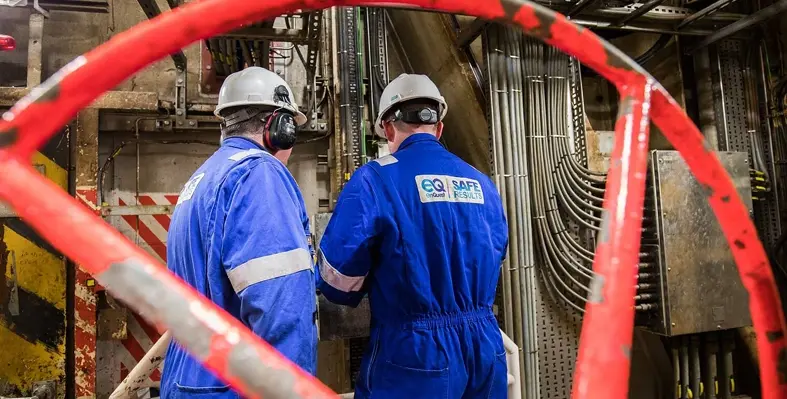

The Greater Kittiwake Area joint venture has appointed EnQuest to continue as GKA operator for the full decommissioning scope, with Shell transferring its decommissioning management role to EnQuest.
Shell had retained operator responsibility for decommissioning the Kittiwake platform and the Mallard field, a subsea tie-back to the Kittiwake platform, when it divested the GKA fields.
EnQuest is delivering on its strategic objective to be the preferred decommissioning operator in the North Sea. The company has demonstrated exceptional decommissioning operator performance through execution of complex decommissioning projects, including the removal of the EnQuest Producer and Northern Producer facilities and the ongoing and extensive well plug and abandonment (P&A) scopes at the Thistle and Heather fields at 40% below benchmark costs. It is on track to complete the P&A of 77 wells, which represents 60% of the EnQuest operated suspended and shut-in wells, within 5 years of cessation of production.
John Allan, EnQuest Decommissioning Director, said, “This is a great vote of confidence in EnQuest by our GKA partners Shell and Dana. It reflects our strong track record of safe, efficient and successful execution of complex decommissioning scopes which is an important part of our company growth strategy.“

 Offshore engineering solutions provider Aquaterra Energy has launched well re-entry and re-abandonment services along with its new patent-pending recoverable abandonment frame (RAF)
Offshore engineering solutions provider Aquaterra Energy has launched well re-entry and re-abandonment services along with its new patent-pending recoverable abandonment frame (RAF)
The combined solution will address challenges in locating, re-entering and re-abandoning legacy wells that penetrate, or pass through, offshore oil and gas reservoirs or saline aquifers that have been earmarked to be repurposed for carbon dioxide (CO2) or hydrogen storage.
The significant economic and technical challenges of re-abandoning problematic legacy wells that pose a leak risk beneath the seabed could derail many carbon capture and storage (CCS) and hydrogen storage projects, that intend to use previously penetrated oil and gas or saline aquifer formations. Technical challenges such as traditional relief well drilling could be infeasible in shallow intersects or where azimuth and depth are unknown.
Excavation methods require enormous amounts of material to be removed and may also fail to isolate re-abandonment loading from the compromised legacy well, meaning both methods may fall short in addressing technical, environmental, safety, and regulatory issues effectively.
Aquaterra Energy’s solution overcomes these challenges by employing advanced seabed and subsurface surveying technologies, well imaging, marking, and tagging to precisely locate wells. This allows the RAF to adjust to an exact well position and install conduits below the seabed to re-engage the legacy well and then back to the surface to allow for successful re-abandonment via a vertical well re-entry tieback method. Crucially the RAF also protects the legacy well components from environmental, lateral and axial loading generated by wave action on the tieback conduits and the re-abandonment operation itself.
George Morrison, CEO at Aquaterra Energy, said, “The introduction of the RAF and our re-entry services illustrate our strategy of pivoting decades of offshore expertise to address the wider challenges of the energy transition. Our team is committed to innovating and taking on the tough issues, ensuring that carbon and hydrogen storage can be effectively delivered as part of our broader commitment to driving the energy transition forward.”
The technology is intended for repeated use across multiple wells or locations with flexibility built in for differing seabed conditions. Its modular design allows for shipping worldwide or road transport for quayside assembly. This could enable the effective abandonment or re-abandonment of wells that may not have been previously possible, while also significantly lowering costs, saving operators £18-20 million per abandoned well - an estimated 80% reduction in comparison to other methods currently deployed. The approach could also lead to major reductions in project timelines, estimated to be up to 50% quicker per well.
"The RAF and our associated suite of services for legacy well re-entry represents a significant leap forward in abandonment technology," said Ben Cannell, Innovation Director at Aquaterra Energy. "Well re-abandonment for CCS is a new challenge, and our solution has been developed to meet it head-on. By reducing project risk, costs and operational time, we're not only making well abandonment more efficient, but also enabling the viability of carbon or hydrogen storage, as these projects would generally be far more costly or even impossible to deliver."
Aquaterra Energy is currently in discussions with major oil and gas operators and specialist CCS operators in several global regions, including the North Sea and APAC, to deploy their legacy well re-entry services and RAF technology.
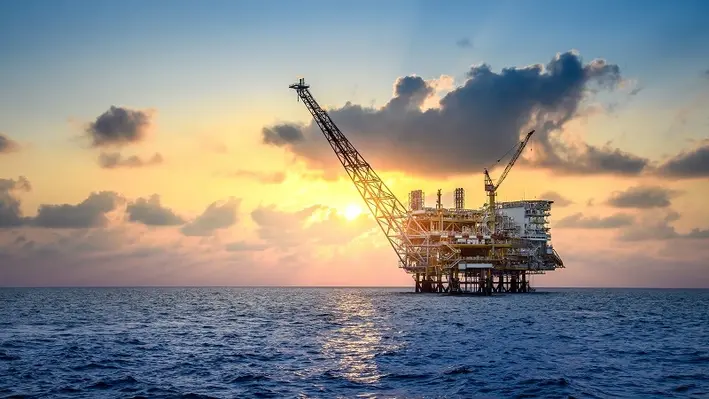
 The UKCS 2024 Wells Insights Report from the North Sea Transition Authority (NSTA) stated there is a huge opportunity to access resources in a timelier, clean and cost-effective way to support the UK’s supply chain.
The UKCS 2024 Wells Insights Report from the North Sea Transition Authority (NSTA) stated there is a huge opportunity to access resources in a timelier, clean and cost-effective way to support the UK’s supply chain.
The report revealed that well intervention is currently able to provide hydrocarbon production at a cost of less than £12/boe, making it a very attractive option in line with today’s oil and gas prices. The report outlines the importance of operators striving to increase their well intervention activity in order to extend the production lifespan of their wells, and to provide a stable flow of work for the UK’s supply chain.
Carlo Procaccini, NSTA Chief Technical Officer, said, “Well intervention work can and does produce impressive results, boosting efficiency and providing cleaner and cost-effective production. We expect that bringing together operators with the supply chain will highlight significant opportunities for everyone.”
In 2023, interventions increased in the Northern North Sea to 102 wells, compared to the 82 in 2022. There has also been an increase West of Shetland where nine wells benefitted from intervention work last year, up from two in 2022. However, Central North Sea, Southern North Sea and the east Irish Sea have experienced a decrease in activity.
To encourage more interventions, the NTSA has already held one-to-one sessions with leading North Sea operators and completed a detailed study of 795 shut-in wells to understand the percentage figure that could be brought back online.
Separately, the report outlined that a total active well stock on the UKCS currently sits at 2,546, down from 2,560 in 2022. The past year has also seen an increase in the number of shut-in wells to an all-time high of 31% of the active well stock (795 wells). While a proportion of these wells could be brought back online, without the necessary investment in infrastructure or downhole interventions, it is more likely these wells will be permanently decommissioned.
In terms of spending, the report highlighted the total exploration and appraisal well spend was UK£571mn, compared to UK£275mn in 2022.
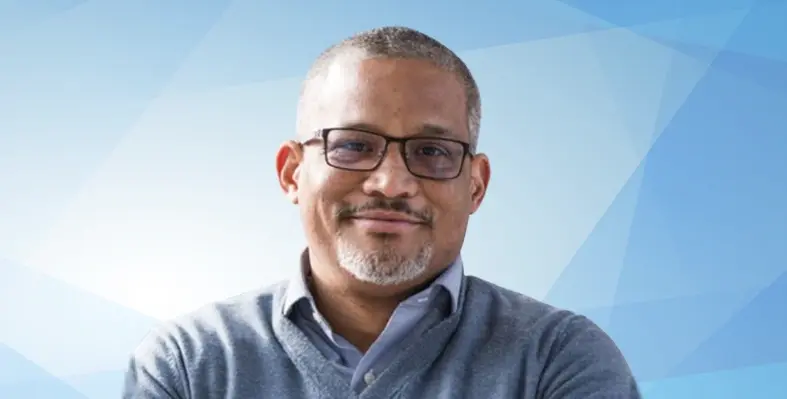
 Archer Well Services has secured a global exclusive license agreement with Raptor Data Limited, enhancing its well integrity and plugging & abandonment (P&A) offerings with innovative technology.
Archer Well Services has secured a global exclusive license agreement with Raptor Data Limited, enhancing its well integrity and plugging & abandonment (P&A) offerings with innovative technology.
This partnership integrates Raptor's advanced wireless acoustic telemetry technologies into Archer Well Services’ well integrity portfolio, significantly improving monitoring capabilities.
Raptor is a UK-headquartered company dedicated to research, design, engineering and manufacture of downhole tools for plug and abandonment. The company's proprietary wireless acoustic telemetry technology is a leader in the market for plug and barrier validation and verification (V&V) and associated workflows for confirming wellbore barrier quality and integrity.
Nicholas Pantin, Executive Vice President of Archer Well Services, said, “Raptor has developed a state-of-the-art downhole acoustic monitoring tool that, with its wireless data broadcasting capabilities, will expand Archer Well Services solutions in the temporary and permanent plug and barriers V&V market, including data transmission of downhole pressure and temperature broadcasted via a wireless acoustic telemetry from below the barrier. This demonstrates Archer’s major commitment to continue improving and managing the placement of reliable well barriers.”
Paul McClure, CEO of Raptor Data Limited UK, said, “I am delighted to announce our partnership with Archer Well Services. Together we complete the strongest offering for well decommissioning in the global market and this positions both companies as leaders of well P&A with a unique set of solutions and workflows for plug and barrier V&V. A combined Archer Well Services – Raptor Data in this space provides unparalleled resources and a technically differentiated global platform to build a scalable high impact business at the cutting edge of technology.”
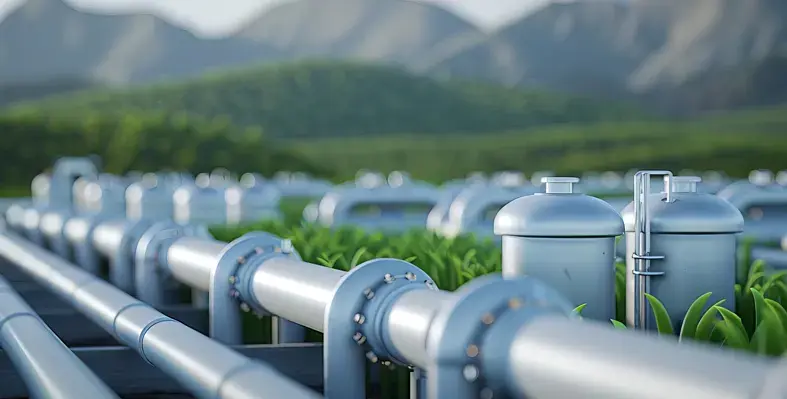
 Archer will be acquiring an additional 10% of the shares in Iceland Drilling from its joint venture partner Kaldbakur for US$2.5mn.
Archer will be acquiring an additional 10% of the shares in Iceland Drilling from its joint venture partner Kaldbakur for US$2.5mn.
Settled in Archer Limited shares, the transaction will bring Archer’s total ownership to 60%. The transaction is expected to close within the next two months.
Iceland Drilling is an international provider of high-temperature geothermal drilling, with offerings across renewable service segments such as deep drilling for electricity generation, wells for district heating and cooling, and wells for carbon storage. It has close to 200 employees with its main operations currently in Iceland and the Philippines.
Archer's CEO, Dag Skindlo, said, "Geothermal energy is an important part of the future energy mix which has direct overlap and synergies with Archer’s core services. We have a clear ambition to increase our well services participation in the growing geothermal market and we are monitoring opportunities to deploy idle and lower specification land rigs to geothermal projects globally. The market for geothermal drilling and district heating is estimated by industry experts to grow meaningfully over the next few decades, and Iceland Drilling is well positioned to capture market share. We will continue to support growth and development of Iceland Drilling and welcome Kaldbakur as a new long-term investor in Archer.”
The increased ownership means that Iceland Drilling will be consolidated into Archer’s financial accounts. The inclusion is projected to increase Archer’s full year 2024 proforma revenue by approximately 4% and EBITDA by 6-7%. Going forward, the transaction is expected to enhance Archer’s cash generation and reduce Archer’s leverage ratio.
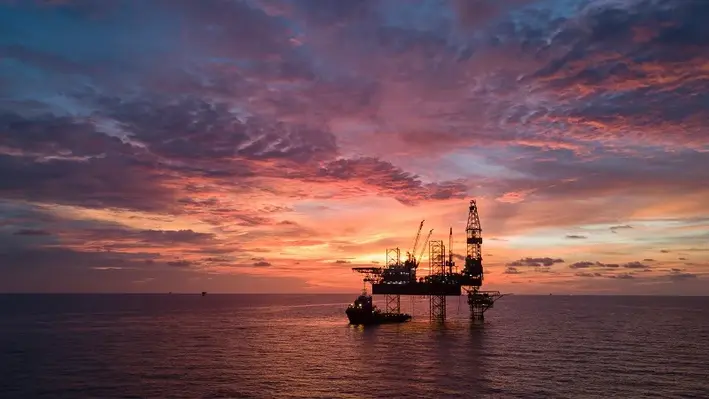

Kent is collaborating with the UK’s Energy Institute to create guidelines for decarbonisation economics in Greenhouse Gas (GHG) emission reduction projects in the upstream oil and gas industries.
This report will provide clear, actionable guidance to help the sector achieve its environmental goals, demystifying the economics of decarbonisation, including the societal cost of carbon. While it will focus on the UK North Sea upstream sector, it will take a global view so that it can serve as a basis for future research across the world. It will involve the collaboration of Kent’s Environmental team, Asset Decarbonisation team, and Energy Environment Economic (E3) Modelling and Communications team.
"We have seen the challenges of presenting decarbonisation projects against standard project economics with the only justification being the reduced OPEX related to Emission Trading Scheme credits and potential increased revenue from an increase in sales gas quantities from reducing fuel and flare gas," said Graham Filsell, Kent’s Decarbonisation lead. "There is a strong case for the societal cost of carbon and potentially an individual asset marginal abatement cost to form part of the project economics for decarbonisation projects."
James Lawson, chair of USEG (Upstream Environmental Group) added, "Decarbonisation and GHG reduction projects are inherently holistic, involving a wide spectrum of energy professionals, many of whom have not previously engaged in economic assessments and project prioritisation. Furthermore, these projects compete for capital and resources with other industry sectors. Therefore, a clear, concise, and targeted document that all energy professionals can refer to will be invaluable for ensuring that capital and resources are allocated appropriately and in line with net zero commitments."
• Demystifying Decarbonisation Economics: Provide clarity for energy professionals with limited exposure to project economics, such as environmental or sustainability managers.
• Understanding Carbon Costs: Offer insights into how carbon costs are calculated and influenced by market forces, including societal costs.
• Alternative Metrics: Recommend non-standard metrics beyond NPV to ensure that decarbonisation goals are met, delivered as a technical note to the industry.
• Justification of Metrics: Articulate and justify the choice of both standard and non-standard metrics used in the guidance.
• Upstream O&G Value Chain: Focus on the upstream sector of the O&G value chain affected by decarbonisation and assess the potential to broaden the scope to the full value chain.
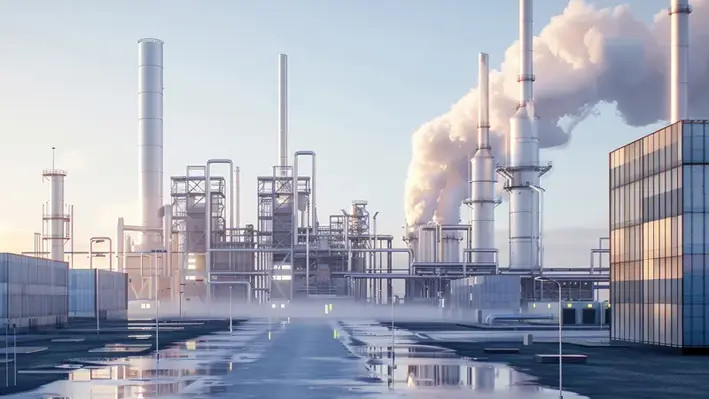

Petrofac will be supporting the Netherlands’ ambitions for CO2 capture and storage as TotalEnergies EP Nederland BV has chosen its services for a multi-million-dollar front-end-engineering design (FEED) for a CO2 injection platform.
The project involves the decommissioning of topsides and installation of a new repurposed platform connecting to the Aramis CO2 distribution network.
Petrofac is already working on a FEED project covering the design of the 32” CO2 trunkline, including onshore, landfall and offshore sections, together with the offshore CO distribution hub platform for the Aramis system, that it took up earlier this year. This additional scope will enhance the company's carbon transport and storage (CCS) sector internationally, influencing its reputation in managing the challenges and opportunities in delivering CO2 capture, transport, and storage at scale.
John Pearson, Chief Operating Officer, Energy Transition Projects, Petrofac, said, “This award demonstrates confidence in our abilities to provide vital engineering and project delivery expertise to projects that span the CCS value chain. This project, associated with the overall Aramis development, is another key component to the Netherlands’ ambitions to capture millions of tonnes of CO2 from industrial emitters in the region. We are immensely proud to be making an important contribution to these ambitions.”
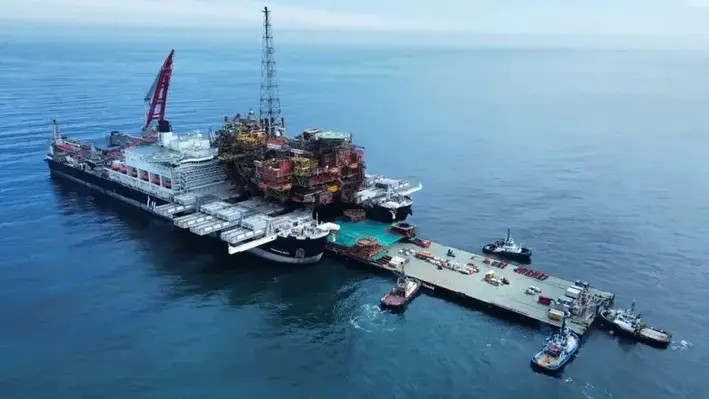

Allseas has reported that Brent Charlie topsides have been successfully delivered to Able UK’s Seaton Port in Hartlepool, UK.
Weighing more than 31,000 t, Brent Charlie is the largest single offshore topsides to be lifted, transported and delivered to shore, according to Allseas. It was initially removed in a single lift by the Pioneering Spirit, Allseas’ heavy lift vessel that is capable of lifting entire topsides of up to 48,000 t and 20,000 t jackets.
After being carried on the vessel to near-location, the topsides was transferred to the custom barge, Iron Lady, for the short tow to the Tees Estuary and onwards to the Seaton Port disposal facility.
Barge and topsides were grounded onto the grounding bed in the wet dock for the load-in. All safety checks complete, the former production platform was skidded onto Quay 6, designed specifically to distribute the weight of the heaviest topsides facilities.
Now delivered, the massive topsides will be decommissioned with as much recycled or re-used as possible. Able UK has achieved over 97% recycling/re-use rates on previously decommissioned Brent topsides Delta (24,000 tonnes), Bravo (25,000 tonnes), and Alpha (17,000 tonnes), and aims to match or exceed this figure for Charlie using its well-established supply chain.
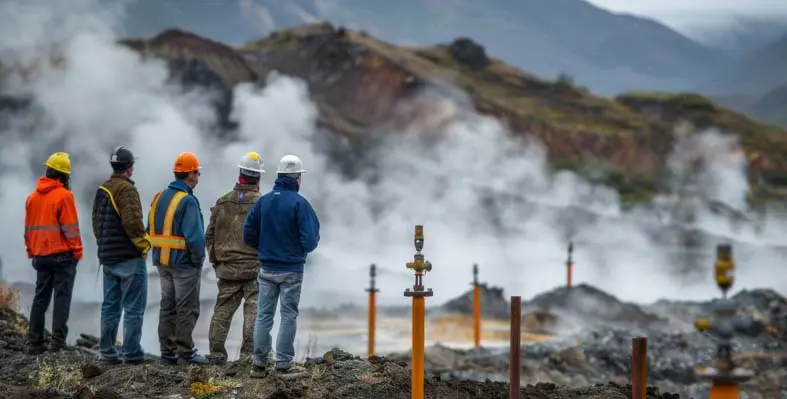
 Geothermal services provider DMT GmbH & Co. KG will be exploring geothermal potential in Münster for Stadtwerke Münster GmbH who commissioned the project as part of the 2030 decarbonisation strategy
Geothermal services provider DMT GmbH & Co. KG will be exploring geothermal potential in Münster for Stadtwerke Münster GmbH who commissioned the project as part of the 2030 decarbonisation strategy
The project will involve a large-scale 3D seismic measurement campaign before winter 2024/25, surveying the deep underground between 1,400 and 7,000 meters, covering the entire city.
"25% of the heat demand in Germany could already be covered in the long term, sustainably and CO2-neutrally using deep geothermal energy. The first steps to accelerate the heat transition with the help of deep geothermal energy have been taken. Now it is important to consistently use and roll out instruments such as exploration loans or insurance, national and international funding and accelerated approval procedures. This means that projects like the one in Münster can soon be implemented throughout Germany," said Maik Tiedemann, Chairman of the Management Board / CEO of DMT, and CEO of the TÜV NORD GROUP Business Unit Energy & Resources.
The campaign will see five vibrator fleets working in parallel, consisting of up to 18 vibro trucks and a measuring crew of around 80. Data collected from the campaign will influence further planning and implementation of the heat transition using deep geothermal energy in Münster and the associated decarbonisation.
"The upcoming measurements in the deep underground around Münster will provide valuable information to specify the agenda for the use of deep geothermal energy in the Münsterland and to define a roadmap for this project. With our recent acquisition of high-quality and state-of-the-art measuring instruments, we are also well prepared for the expected increase in orders," said Thorsten Müller, Head of Business Entity Exploration Seismic at DMT, who leads operational teams.
Page 11 of 36
Copyright © 2026 Offshore Network